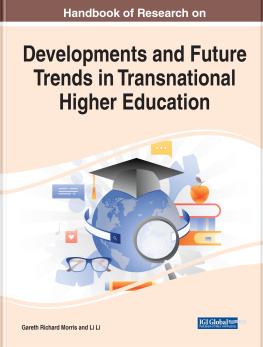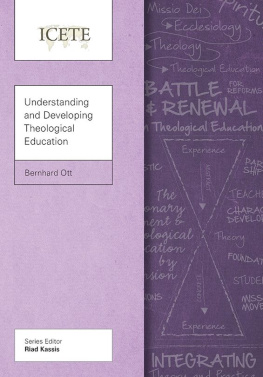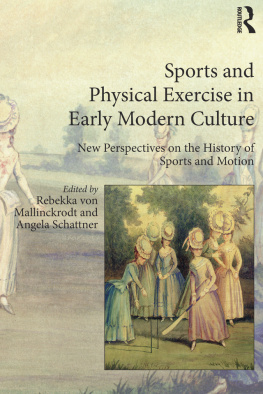The International Library of Sociology
NEW TRENDS IN EDUCATION IN THE EIGHTEENTH CENTURY
The International Library of Sociology
HISTORICAL SOCIOLOGY
In 9 Volumes
| I | America: Ideal and Reality | Stark |
| II | British Social Work in the 19th Century | Young et al |
| III | Farewell to European History | Weber |
| IV | A History of Autobiography in Antiquity Part One | Misch |
| V | A History of Autobiography in Antiquity Part Two | Misch |
| VI | Men of Letters and the English Public in the 18th Century | Beljame |
| VII | New Trends in Education in the 18th Century | Hans |
| VIII | Peasant Renaissance in Yugoslavia 1900 - 1950 | Trouton |
| IX | Sociology of the Renaissance | Von Martin |
NEW TRENDS IN EDUCATION IN THE EIGHTEENTH CENTURY
by
NICHOLAS HANS
First published in 1951 by
Routledge
Reprinted in 1998 by
Routledge
2 Park Square, Milton Park, Abingdon, Oxon, OX14 4RN
Transferred to Digital Printing 2007
1951 Nicholas Hans
All rights reserved. No part of this book may be reprinted or reproduced or utilized in any form or by any electronic, mechanical, or other means, now known or hereafter invented, including photocopying and recording, or in any information storage or retrieval system, without permission in writing from the publishers.
The publishers have made every effort to contact authors/copyright holders of the works reprinted in The International Library of Sociology.
This has not been possible in every case, however, and we would welcome correspondence from those individuals/companies we have been unable to trace.
British Library Cataloguing in Publication Data
A CIP catalogue record for this book
is available from the British Library
New Trends in Education in the 18th Century
ISBN 0-415-17611-5
Historical Sociology: 9 Volumes
ISBN 0-415-17825-8
The International Library of Sociology: 274 Volumes
ISBN 0-415-17838-X
Publishers Note
The publisher has gone to great lengths to ensure the quality of this reprint but points out that some imperfections in the original may be apparent
PREFACE
A comprehensive history of English education still remains to be written. The ground has not yet been sufficiently covered to provide adequate material for the future historian. Before he can undertake the task many individual historians and research students of University Education Departments have to publish special monographs on some particular aspect or some period of English education. Especially the study of social and economic conditions as reflected in education is urgently needed. The happenings of the last decades have opened our eyes to many new approaches, which were entirely neglected before. Leach, Adams, Adamson, Foster Watson, Archer, Montmorency, to name only a few, have done pioneering work, but they inevitably have left considerable gaps quite unexplored. Because the facts were imperfectly known the conclusions drawn from them were often one-sided and sometimes entirely wrong. The eighteenth century is one of the most neglected periods of English education and was misjudged as a dull and barren record, or a century of educational sleep as Montmorency called it. Only the Dissenting Academies and the Charity Schools attracted attention owing to the works of Irene Parker, M. McLachlan and Miss M. Jones. The old Grammar Schools and the Universities were universally condemned and the work of private Academies and schools was simply unknown. And yet is it probable that the century of Franklin and Jefferson in America and of Rousseau, the Encyclopedists and Condorcet in France has produced nothing of note in England, which was in intimate contact with her neighbours on both sides? In the seventeenth century England was the centre of an international education movement, produced all the schemes of Hartlib and his associates around the person of great Comenius, gave John Locke to the world and created the Royal Society as the prime mover of scientific research. Can we believe that after such a brilliant start this country was at a standstill for a century?
These reflections led the author to the study of the eighteenth century and its educational institutions and movements. From the very start sufficient evidence was found to refute the general opinion. The eighteenth century was perhaps the most interesting period of English education; it was not only a period of as brilliant schemes and philosophic works as the seventeenth century, it was also a period of actual realisation of modern education. The author believes that the book which follows provides a sufficient proof of his opinion. Let the reader decide for himself. The author is greatly indebted to his colleague, P. P. Brown, of Kings College, for reading through the manuscript and supplying many valuable suggestions.
N. HANS.
Kings College, London.
January 1950.
CHAPTER I
GENERAL BACKGROUND
Modern education in the eighteenth century was the result of a combination of three independent motives: religious, intellectual and utilitarian. The Reformation provided the religious reason for the study of nature and things instead of words. God created the world and the best way to understand the working of the divine law was to study his creation. Nature was a supplementary source to the revelation of the Bible for the attainment of the same end. Thus the idea of propagatio fidei per scientias was the basis of the pansophic schemes of Comenius and his followers. All the pioneers of education in the seventeenth century were believing Christians and their declared purpose in reforming schools was the desire to vindicate the revelation of the Bible by scientific research. These ideas were closely connected with the missionary zeal of spreading Christianity among the natives of the newly discovered America. In all the schemes of the seventeenth century these two purposes of the propagation of Christianity among non-Christians and of the vindication of faith by science were intimately connected. In this respect the Hon. Robert Boyle may be taken as a representative of his time. His constant concern both with missionary work in America and with the introduction of the experimental study of nature is clearly seen in all his correspondence and schemes. His bequest of a fund for the establishment of Boyle Lectures for the defence of Christianity against unbelievers by a scientific interpretation of the world was a practical measure for that end and resulted in many publications in the eighteenth century. Comenius himself was not only the leader of educational reformers but also a Bishop of the Moravian Church.
The second motive of intellectual curiosity, not necessarily irreligious, was of even earlier origin. The movement was started in Italy by the Platonic Academies of the sixteenth century which were established to discover the secrets of nature. Della Porta named his institution of 1560 in Naples









